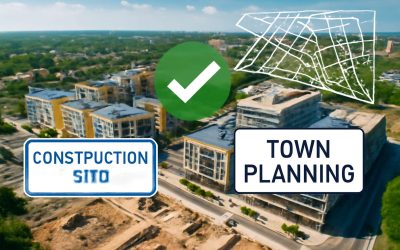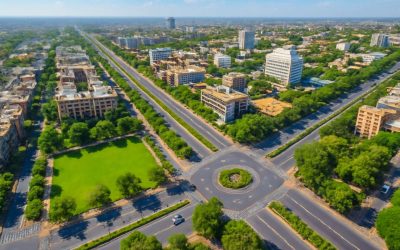
Spatial planning is a process in which governments and other public sector actors make decisions regarding the allocation of resources in space to meet the needs of future generations. This activity typically involves the use of a range of techniques and methodologies.
It is a multi-disciplinary field and requires a range of knowledge, skills and capabilities that include, among others: technical know-how, methodological knowledge, communication and leadership abilities, and an understanding of social and economic factors that affect the use of space.
Developing effective and efficient spatial planning is important to reduce vulnerability of individuals and structures to extreme events, to ensure sustainable and resilient development, and to support the capacity of regions and cities to adapt and cope with climate change. It can also help to protect and enhance the quality of life by addressing issues such as housing, food security, health, infrastructure, transportation and environmental protection.
The SPA aims to provide local authorities with an integrated approach to planning for growth, land use, and resilience by bringing together a number of different stakeholders at a higher level than is currently possible. This means a step change to how central government approaches and works with local government.
A key aspect of this will be the creation of Regional Spatial Strategies (RSAs) that will set a strategic direction for at least 30 years, informed by longer-term data and evidence. These RSAs will then be monitored and reviewed every nine years.
This will require a new and more flexible approach to planning which can be a challenge for some local authorities. However, it is hoped that this approach will encourage the formation of more resilient and inclusive communities that are responsive to the challenges they face, whilst ensuring that the environment and the values of te ao Maori are protected.
In addition, it will be necessary to utilise and implement new technologies for spatial analysis which can be used to identify areas of risk and potential vulnerabilities. This will be particularly important in regions and cities that are under pressure from both the impacts of climate change and rapid population growth.
Moreover, it is vital to develop and implement effective and reliable hazard information for spatial planning purposes in order to ensure that planners have the critical data they need to make appropriate decisions on land use. This will require a wide range of technical expertise including, for example, knowledge of how to generate and combine different types of hazard maps, risk assessment information and related guidelines that are relevant for the specific type of planning being carried out.
As it is crucial to harmonise the use of hazard related data, it is important to provide a platform for this collaboration where different stakeholders can share their relevant data and knowledge in order to foster mutual learning and mutual benefit. This should be done in conjunction with a sound policy on how to produce and manage hazard related information and how to integrate this into planning processes as part of the CHARIM project.



0 Comments